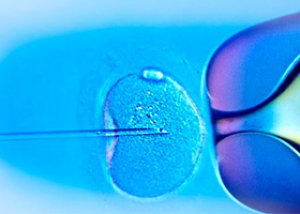
All iLive content is medically reviewed or fact checked to ensure as much factual accuracy as possible.
We have strict sourcing guidelines and only link to reputable media sites, academic research institutions and, whenever possible, medically peer reviewed studies. Note that the numbers in parentheses ([1], [2], etc.) are clickable links to these studies.
If you feel that any of our content is inaccurate, out-of-date, or otherwise questionable, please select it and press Ctrl + Enter.
IVF success can be predicted
Medical expert of the article
Last reviewed: 02.07.2025
 ">
">It turns out that the probability of a positive IVF result directly depends on the content of the stress hormone in the female body. The level of this hormone can be tracked by analyzing women's hair. This was reported by specialists from the British University of Nottingham. The results of the study are presented in the journal Psychoneuroendocrinology. Scientists note that elevated levels of cortisol reduce the chances of successful fertilization by about 1/4. IVF is one of the most effective ways to conceive a child for couples suffering from infertility. This method is currently considered the most popular and widespread.
The procedure is quite expensive. However, it is impossible to predict its effectiveness in advance: too many factors influence the success of IVF. This includes the woman's age, her weight, and the presence of other diseases in the body. However, both in the past and now, scientists associate a decrease in the success of the procedure with the influence of any kind of stress. The "stress marker" - cortisol - is an accurate indicator of the presence of stress. For many years, specialists have been trying to understand the importance of this hormone for all stages of fertilization. In particular, they have now tried to link the amount of cortisol with the percentage of success of the IVF procedure. Dr. Kavita Vedara tried all the most likely ways to measure the level of stress hormone in women: these were blood tests, urine tests, saliva tests, as well as hair tests.
The professor ultimately chose hair because it shows the hormone levels in the body not only at the time the test was taken, but also over the past few months. Doctors conducted a small experiment involving 135 women undergoing in vitro fertilization. All women were treated at the same medical center between late 2012 and early 2014. Of the 135 women, only 60% successfully became pregnant - that is, 81 patients. Doctors found a clear connection between the cortisol levels in saliva and hair and the success or failure of the fertilization procedure. It was proven that with a high level of the stress hormone, the success of the procedure decreased by an average of 27%. "We understand that the success of in vitro fertilization is influenced by many factors, and not all of them have been fully studied. Doctors are interested in determining a woman's chances of getting pregnant after IVF, because this procedure is not only complicated, but also expensive.
"Probably, artificially influencing the blood cortisol level during the IVF protocol will help increase these chances," comments on the results of the experiment, one of its leaders, Dr. Adam Massey. Scientists admit that it is not only stress that prevents successful conception - it is necessary to pay attention to all possible factors. But the obtained figure of 27% is impressive and gives a lot of reasons for reflection. While the study is not finished, doctors are already recommending their patients to avoid stressful situations if possible not only during, but also before the period of preparation for IVF.

